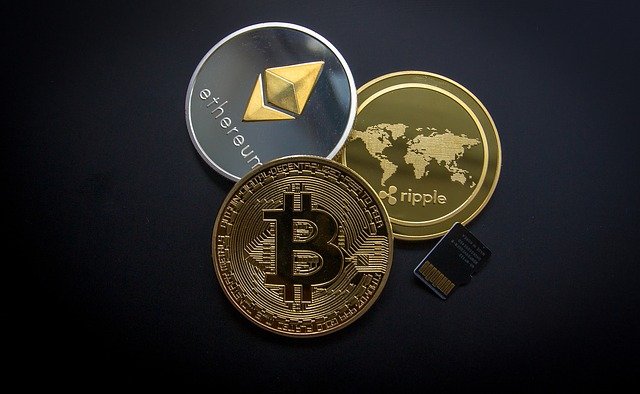Cryptocurrency storage and security are paramount considerations for anyone involved in the digital asset space. As the value and popularity of cryptocurrencies continue to rise, ensuring the safekeeping of your holdings is essential to protect against theft, hacking, and other risks. This comprehensive guide explores the importance of secure cryptocurrency storage, different storage options available, best practices for hardware wallets, securely storing cryptocurrency on exchanges, tips for creating strong passwords and recovery phrases, implementing multi-signature security measures, and safeguarding against phishing and social engineering attacks. By following these guidelines, you can better safeguard your cryptocurrency investments and navigate the evolving landscape of digital asset security.
**1. Importance of Secure Cryptocurrency Storage**
When it comes to your precious crypto stash, secure storage isn’t just a suggestion—it’s a necessity. So, why all the fuss?
**1.1 Risks of Insecure Storage**
Picture this: you wake up one morning, ready to check your crypto holdings, only to find they’ve vanished into thin air. That gut-wrenching feeling? Yeah, not ideal. Insecure storage methods like leaving your keys on a post-it note (please don’t) or using a sketchy online wallet put your funds at risk of hacks, theft, and all-around bad juju.
**1.2 Benefits of Properly Securing Cryptocurrency**
On the flip side, locking down your crypto with top-notch security measures means you can sleep soundly knowing your digital assets are safe and sound. Plus, taking the time to safeguard your investments can save you heaps of stress and potentially loads of money down the road.
**1.3 Regulatory Considerations**
Oh, regulations – the necessary evil of the crypto world. Keeping up with the latest guidelines can save you a headache or two, not to mention keep you on the right side of the law. Just remember, playing by the rules isn’t just for show—it’s for your own protection, too.
**2. Understanding Different Storage Options**
Not all crypto storage solutions are created equal. Let’s dive into the wonderful world of storage options to help you find the best fit for your digital moolah.
**2.1 Hot Wallets vs. Cold Wallets**
Hot wallets are like that friend who’s always online and ready to hang, while cold wallets are more chill and offline most of the time. Deciding between the two boils down to how often you trade and how secure you want to be. Pick your poison wisely, young padawan.
**2.2 Software Wallets**
Software wallets are like the Swiss Army knives of crypto storage—versatile, easy to use, and perfect for everyday transactions. Just make sure you’re downloading from reputable sources and keeping those pesky viruses at bay.
**2.3 Hardware Wallets**
Hardware wallets are the Fort Knox of crypto storage. They’re physical devices that keep your keys offline and away from prying eyes. Sure, they might cost a pretty penny, but think of it as an investment in your peace of mind.
**3. Best Practices for Hardware Wallets**
So, you’ve decided to take the plunge and snag yourself a hardware wallet. Here’s how to make the most of it without breaking a sweat.
**3.1 Setting Up a Hardware Wallet**
Setting up your hardware wallet is like assembling IKEA furniture—frustrating at times, but oh-so-satisfying once it’s done. Follow the instructions to a T, and you’ll be good to go in no time.
**3.2 Backing Up and Recovery Procedures**
Backup, backup, backup. Did we mention you should back up your keys? Losing access to your wallet without a backup is like losing your keys to a Lamborghini—you have the car but can’t take it for a spin. Yikes.
**3.3 Firmware Updates and Security Patches**
Just like your phone needs updates, your hardware wallet craves them too. Keep that firmware up to date and install security patches like your crypto’s well-being depends on it. Spoiler alert: It does.
**4. Securely Storing Cryptocurrency on Exchanges**
Exchanges can be the Wild West of the crypto world, so here’s how to tame the beast and keep your assets safe and sound.
**4.1 Two-Factor Authentication (2FA)**
Think of two-factor authentication as the bouncer outside the club—without it, anyone can waltz right in. Set up 2FA on your exchange accounts to add an extra layer of security that keeps the bad actors at bay.
**4.2 Withdrawal Whitelists and Security Settings**
Setting up withdrawal whitelists is like putting your crypto on a VIP list—only pre-approved addresses get to party with your precious assets. And hey, while you’re at it, tweak those security settings to max out your exchange’s defenses.
**4.3 Reviewing Exchange Security Measures**
Before you go all-in on an exchange, do your due diligence and suss out their security measures. Look for things like encryption protocols, cold storage practices, and a solid track record of keeping their users’ funds safe. Trust us, a little research now can save you a ton of stress later on.
5. Tips for Creating Strong Passwords and Recovery Phrases
5.1 Password Generation Best Practices
When it comes to creating passwords for your cryptocurrency accounts, avoid the urge to use “password123” or “qwerty” — hackers love predictability like that. Opt for a mix of uppercase and lowercase letters, numbers, and special characters to beef up your password game.
5.2 Importance of Unique Passwords
Reusing passwords across multiple accounts is a big no-no in the world of crypto security. If one account gets compromised, all your other accounts with the same password could be at risk too. Be unique, be creative, and give each account its own special passcode.
5.3 Creating and Safeguarding Recovery Phrases
Recovery phrases are like the spare keys to your crypto kingdom. Write them down on a piece of paper and store them somewhere safe like your underwear drawer or inside a hollowed-out book. Just don’t forget where you put them!
6. Implementing Multi-Signature Security Measures
6.1 Understanding Multi-Signature Wallets
Think of multi-signature wallets as the buddy system for your crypto transactions. With multiple signatures required to approve a transaction, it adds an extra layer of security and accountability to your crypto dealings.
6.2 Setting Up Multi-Signature Accounts
Setting up a multi-signature account involves assigning multiple keys to authorize transactions. It’s like having a team of superheroes guarding your crypto funds — no single key can unlock the treasure trove without the others.
6.3 Managing Multi-Signature Transactions
When making transactions with a multi-signature wallet, each key holder must sign off for the transaction to go through. It’s like a digital handshake among trusted parties, ensuring that no funny business happens behind your back.
7. Safeguarding Against Phishing and Social Engineering Attacks
7.1 Recognizing Common Cryptocurrency Scams
Watch out for emails claiming you’ve won a million bitcoins from a Nigerian prince — if it sounds too good to be true, it probably is. Educate yourself on common cryptocurrency scams to avoid falling victim to these digital swindlers.
7.2 Verifying Authenticity of Communications
Before clicking on any links or downloading attachments related to your crypto accounts, double-check the sender’s email address and look out for any red flags like spelling errors or suspicious requests. When in doubt, pick up the phone and verify directly.
7.3 Educating Yourself and Your Team on Security Awareness
Knowledge is power when it comes to safeguarding your cryptocurrency. Take the time to educate yourself and your crypto squad on the latest security threats and best practices. A well-informed team is your best defense against cyber villains lurking in the digital shadows.In conclusion, safeguarding your cryptocurrency assets through secure storage practices is crucial in ensuring their longevity and protection. By understanding the various storage options, implementing best practices, and staying vigilant against potential threats, you can mitigate risks and enhance the security of your digital wealth. Remember, staying informed and proactive is key to safeguarding your cryptocurrency holdings in an ever-evolving digital landscape.
FAQ
1. Why is it important to use hardware wallets for storing cryptocurrency?
2. What are the common security risks associated with storing cryptocurrency on exchanges?
3. How can I protect my cryptocurrency holdings from phishing attacks and social engineering scams?
4. What steps can I take to enhance the security of my cryptocurrency wallet recovery phrases?

AdHang.com is the No.1 agency for digital marketing in Nigeria and the first Internet public enlightenment agency in Africa. AdHang has everything needed to achieve your digital marketing objectives and goals. From strategic digital marketing, a tactical approach to employing advanced digital marketing tools and technologies, using seasoned marketers with decades of marketing communications experience.








Comments